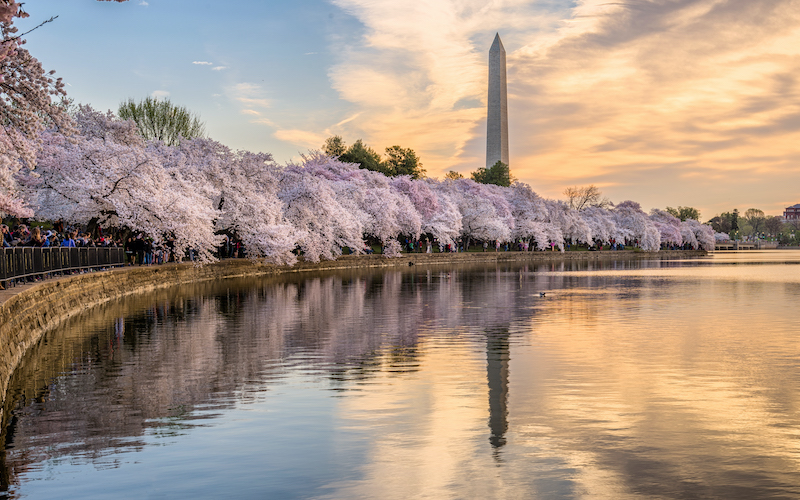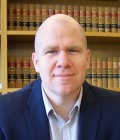
Beyond his many contributions to the law, Judge Williams’s intellectual curiosity fostered his commitment to humanity.
The Regulatory Review pays tribute to Judge Stephen F. Williams, a longtime member of the U.S. Court of Appeals for the D.C. Circuit who died earlier this month after battling COVID-19.
Universally admired by his colleagues, Judge Williams will be remembered for his collegiality, humor, curiosity, and exacting jurisprudence. Indeed, Judge Williams was and will remain a giant in administrative law. An expert in economics and energy law, Judge Williams developed a frequently cited test to distinguish legislative and non-legislative rules, nearly revived the non-delegation doctrine, and oversaw a number of key antitrust cases.
Judge Williams was born in New York City, the youngest of three children of Virginia Fain and C. Dickerman Williams. A graduate of Harvard Law School, Judge Williams taught law at the University of Colorado for many years before assuming his role as a judge on the D.C. Circuit. He also taught as a visiting professor at the University of California, Los Angeles, The University of Chicago Law School, and Southern Methodist University. He is survived by his wife, both siblings, five children, and nine grandchildren.
The Regulatory Review presents the following personal reflections on Judge Williams’s life from Wharton professor Peter Conti-Brown, a former clerk of the judge’s.
— The Editors
It is difficult to put into words what Stephen Williams was for me: a beloved friend, a scholarly interlocutor, a personal consigliere, a critical editor, a boss, a role model.
As the encomia honoring the remarkable life of Judge Stephen F. Williams continue, I expect that most will be focused on his prodigious scholarly and judicial output. This focus is appropriate: Judge Williams’s contributions to the broader world beyond his immediate circles were primarily legal and intellectual. But as I think about what Stephen Williams meant to me most, the words that capture his role incompletely are not focused on that work, however important.
In this essay, then, I want to write about Stephen Williams, the man. I want to memorialize at some risk of the maudlin (which would have made him squirm) what made him such a unique figure personally, and why his passing is such an occasion of exquisite grief for me, his other clerks, and for so many others. In part, I want others who aspire to have the impact that he had to understand better how he did it. The truth is that to have that influence requires much more than brilliance, although Judge Williams’s was a truly one-of-a-kind intellect. It requires a willingness to invest a fearless love of ideas into a common humanity.
When I first secured a clerkship with him as a rising third-year law student, I was elated. This was the big leagues, and I knew it. I was also a little intimidated. I was this hayseed Democrat from Oklahoma who grew up in poverty as the sixth of seven children to a single mother and who considered himself a socialist in college. Judge Williams was an urbane New Yorker with a distinguished family pedigree who went on to become a leading libertarian voice in the Reagan revolution. Labels matter in our partisan era, and I worried that what separated us would make the year something of a slog.
I was dead wrong. Better, I was perfectly correct in noting that we were indeed quite different, but very wrong about the implications of those differences. Over the course of the eleven years I knew Judge Williams, our differences enriched our perspectives and forced us to articulate why we believed what we believed, and how an outsider from that viewpoint could be aided in understanding it.
These differences never once led to an argument or hostility, although we disagreed constantly and debated even more, often just to match wits. It is hard to imagine in our polarized world, but Judge Williams relished intellectual contact with others—especially in the face of disagreement. He could not have cared less about pedigree, politics, or geography, except to the extent that they aided in the quest for learning interesting and useful things about a world he loved.
Two aspects made this thrill of debate so poignant and so effective. First, Judge Williams had a lifelong love affair with ideas. Second, he never lost sight of the vital importance of our shared humanity.
First, his love of ideas. In deciding cases, Judge Williams did not pull rank. Good ideas mattered and bad ideas, once deliciously exposed, did not. He abandoned his own bad ideas and forced you not to defer to his good ones. I marveled at that as a clerk. Many federal judges I have known seem to take deference to their station as a perk of a job whose monetary compensation has not kept pace with the private practice of law. Not so for Stephen Williams the judge or the man. For some, that kind of intellectual egalitarianism is exhausting. For the judge, that process of exposing the good and rejecting the bad was what pushed him on his bike to the courthouse every day.
This intellect is why I think, when hiring clerks, Judge Williams—someone with very strong views on a number of political questions—simply did not give two whiffs about his clerks’ politics (although, to be clear, I did not identify myself as a college socialist in my interview). You read from time to time that some judges hire a “counter-clerk” to forcibly promote ideological diversity—those are the judges invested in that diversity. I never addressed the topic of intellectual and ideological diversity among his clerk family with him, but I would imagine this kind of social engineering would have been anathema to him. He did not need it. I would wager that Williams clerks boast the greatest political diversity of any group of clerks for any federal appellate judge. Because Judge Williams’ curiosities roamed so freely, that meant his clerks’ intellectual and ideological backgrounds did, too.
Part of that intellectual pursuit made Judge Williams a magnet for future academics. Because he front-loaded his cases to the first half of the year, the second half of the year was open for clerks to pursue their own intellectual efforts. This phenomenon—when clerks in other chambers were sweating bullets in May, the Williams clerks were preparing law review articles for August submission—led some resentful non-Williams clerks to dub our clerkship the “Williams Fellowship.”
The judge did not like that label, as I learned quite innocently. We were getting his instructions on what to seek from within the forbidding mountain of clerk applications, and I mentioned offhandedly that I assumed we should filter in part for future academics. “It’s the ‘Williams Fellowship’ after all.” Wrong answer. He flashed a rare moment of distemper: “No, this isn’t a fellowship and I don’t know why people keep thinking that all I want is academics.” He explained that he felt pride in his clerks’ accomplishments no matter their path, and that we should not favor any one career aspiration over another.
After this reprimand, we kept talking about what he did want: “Well, I obviously want to see their writing, and none of this law firm memo stuff. I want to see the academic articles they’ve written.” When we noted that many great law students simply do not have academic writing samples, he persisted: “They wrote senior theses, didn’t they?” And he meant it: I remember one clerkship candidate who won the judge over with an impressive senior thesis (which we had to beg the candidate to submit in the first place).
The judge’s passion for ideas led him to surround himself with others who felt the same, whether they were headed for the academy or simply had to scramble to edit their literature theses to meet his approval. It was in the air he breathed.
Second, his humanity. Judge Williams was, to his bones, a humanitarian. By that term, I mean that he cared about individual human flourishing and suffering and never lost sight of people even—especially—when weighing their fates as a federal judge. Take a look at his judicial output in criminal law matters. He thought his duty as a judge included exercising authority granted to him in favor of reducing the burdens placed on these individuals in part to remedy the parts of our carceral state that he regarded as immoral and illegal. This was not an empathetic style of judging, necessarily, but it was an emphatic and principled one. We had several criminal cases my year in chambers. He poured over those records and those cases to be certain that there had been no prejudicial error that caused people to be shackled longer than the law required.
This final point was driven home to me about a year ago. The judge and I were meeting for lunch, as we regularly did. Those post-clerkship lunches included wide-ranging seminars and debates on law, politics, economics, history, books, dogs, sports, family, humor, gossip—in short, everything under the sun.
The day before our lunch, though, I had learned that an acquaintance of mine, a young man with mental disabilities, had pled guilty to serious charges and received a very long sentence in federal prison. I struggled in my discomfort with the gravity of the crimes and wondered what responsibility, if any, I owed this young man. As we sat for lunch, I told Judge Williams what was on my mind. It goes without saying that he was just as upset by these crimes as I was, but his reaction to the nature of the crimes did not shake his commitment to see the defendant as a person. He bolted upright and proceeded to give me the firmest advice he ever gave me, on any topic: “You must help this boy.” The judge told me to write him letters, send him packages, and reassure him that he was not forgotten. “The system will chew him up. He needs hope, and you have a role to exercise in giving it to him,” he said.
This is how I remember my dear friend, my mentor, my sparring partner, my hero: Sitting upright in a corner of the D.C. Circuit cafeteria with fire in his eyes, pleading with me never to forget the humanity of a disabled man convicted of a heinous crime.
Let me give the last word to the judge himself, because in it he teaches an important truth about how we can make sense of a sometimes senseless world. A few years ago, I wrote him a Christmas letter, as I always did, but that time really opened up to him about how much he meant to me. Judge Williams responded:
Let me start by admitting that I almost cried in reading this. I think I’m in a phase where my overwhelming feeling about life is gratitude. I keep being reminded of a French friend (who is the mother of a French friend who is a contemporary of mine) whose last words, dying at about 101, were simply “Thank you,” clearly in her case addressed to the deity, as she was a staunch believer. One of the many things I’m thankful for is the whole web of relationships that are part of your narrative on clerkships.
I concur with that French centenarian and with the man who, but for this awful pestilence, would have been an American centenarian, too. Gratitude is everything. Today and for the rest of my days I am and will be profoundly grateful to the fates for Stephen Williams. He truly made this world—my world—a beautiful place.




